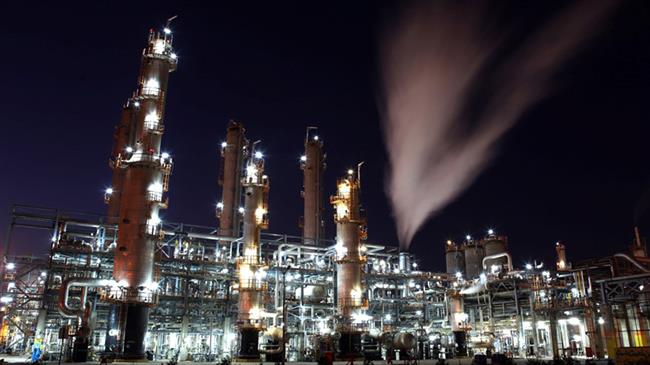Iran’s sale of LPG through local bourse hits new high
The daily sale of liquefied petroleum gas (LPG) produced in Iranian refineries and supplied through a local bourse mechanism has set a new high as reports suggest around 115 million liters of the product has been sold in one single exchange.

A Monday report on the website of Iran Energy Exchange (IRENEX) said that the National Iranian Oil Refining and Distribution Company (NIORDC) had pocketed more than $23 million trading one cargo of the LPG in the export ring of the exchange earlier in the day.
The cargo weighed 60,000 tons, said the IRIB News, adding that the volume was the highest recorded in the past three months for the NIORDC and its refineries.
Seyyed Ali Hosseini, who serves as the CEO of the IRENEX, told the ISNA news agency that the LPG trade recorded on Monday had been unprecedented.
He said that continued supply of refined products by the NIORDC through the local energy bourse showed that the mechanism had become a reliable and transparent system for exchange and pricing of energy in Iran.

Iran’s gasoline, LNG exports hit weekly recordIran’s energy exchange market IRENEX reports $100m worth of exports for gasoline, LNG in one week.
Trading refined products through IRENEX has become popular since it was first launched in mid-summer. That is mainly because customers from neighboring countries like Afghanistan and Iraq see it as a safe method to avoid American sanctions that restrict dealing with Iran.
The surge in trade in the local bourse is also a sign that the downstream section of the oil and gas industry in Iran is experiencing a historic boom, especially at a time the country faces numerous hurdles in its direct sale of crude.
Iran has 600,000 barrels per day of surplus oil that can be turned into various refined products. Experts believe the Oil Ministry and its affiliated companies would become more involved in trade at IRENEX in the future as sanctions imposed by the US is making it more difficult for them to directly sell their products to foreign customers.







